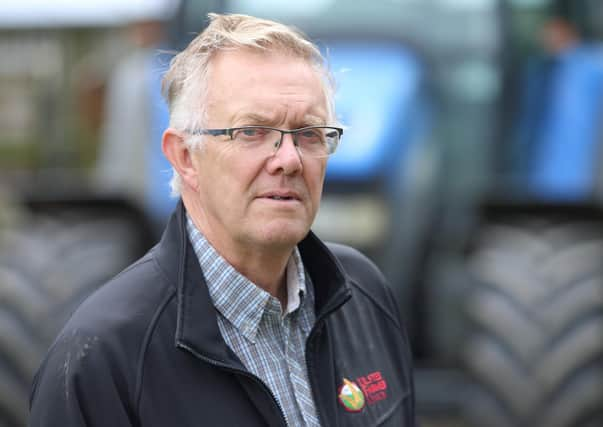International trade issues set to dominate agenda


Michael Haverty, a partner and senior research consultant at the Andersons Centre will be giving evidence.
He said: “Priority number one for the UK government will be to secure an equitable trading agreement with the European Union, one that meets the needs of the farming and food sectors in GB and Northern Ireland.
Advertisement
Advertisement
“After that, the issue of securing a trade deal with the United States can be addressed in a more realistic context.”
The Andersons Centre provides business advice, research and economic analysis to the agricultural, rural and food sectors across the UK and Ireland.
Michael Haverty continued: “When it comes to dealing with the US, issues pertaining to food standards and costs of production on farm come into sharp focus. This is particularly the case where beef, pork and poultry are concerned.
“Farmers here in the UK have spent the last four decades adhering to EU rules and regulations pertaining to animal welfare and the environment, adherence to which has required significant investment on their part.
Advertisement
Advertisement
“So a level playing field does not exist when one compares the production standards now required of UK farmers when compared with their US counterparts.”
Meanwhile, The Ulster Farmers’ Union (UFU) says the announcement made by the UK Government, earlier this week, confirming the establishment of a Trade and Agriculture Commission, is a vital development amid post-Brexit trade negotiations and will be well received by members. UFU president Ivor Ferguson said: “We have been pushing for the introduction of legislation to ensure that the UK’s production standards are not undermined and we will continue to do so as both the Agriculture and Trade Bills have progressed through the UK Parliament.”
“In addition, along with the other UK farming unions, we have been lobbying for the establishment of a Trade and Agriculture Commission for the past 18 months, and we are very pleased that Government have recognised the importance of setting up the commission to address the challenges of protecting our world leading farming and food production standards. Our members now have a formation in the shape of the Trade and Agriculture Commission, that will help to ensure that their dedication to upholding the UK’s high-production standards and producing quality food for the nation, is not undermined in future trade deals. “The UFU is looking forward to getting things moving in the coming days. The next step is working with Government and other stakeholders on the Commission’s terms of reference to make sure that the work is valuable. It is particularly essential that Parliament can appropriately review the Commission’s proposals and can ensure Government implements them effectively.”
He concluded: “As trade negotiations continue, the UFU will remain committed to analysing the progress with all countries in great detail as well as proceeding with the Commission’s work so that our future trade deals benefit UK farmers and consumers, and allow the Northern Ireland agriculture industry to flourish. The support of Parliament is a vital aspect of achieving this.”
Advertisement
Advertisement
The National Sheep Association (NSA) has welcomed the announcement by Secretary of State for International Trade Liz Truss, signalling the Government’s consensus to creating a body to assess the risks of trade agreements to UK Agriculture.
NSA Chief Executive Phil Stocker comments: “This is a really good starting point to show the Government really means to take British Standards and food production seriously. However, there are still a lot of questions to be answered and commitments to be stuck to. At this stage this could still just be Government paying lip service to industry, so NSA will continue to call for real legislative commitment through the Trade Bill or Agriculture Bill. NSA has been involved with an amendment for the Trade Bill calling for a legislative commitment for this sort of committee and we still believe its essential to have that protection for this.”